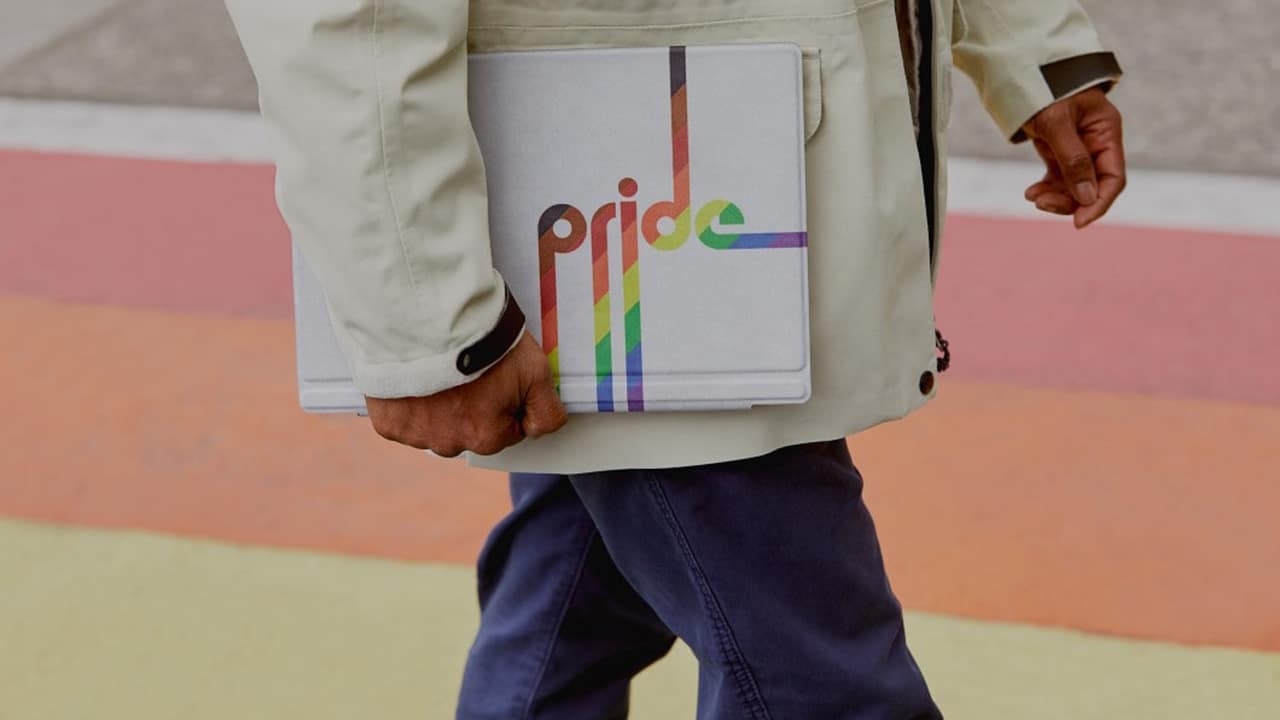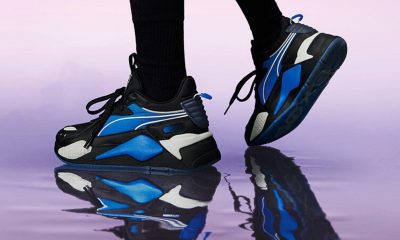Enterprise
Tech brands celebrating Pride month
LGBTQ+ rights are human rights

This year marks the 50th anniversary of the Stonewall uprising, a series of protests widely regarded as the historic event that ignited the gay liberation movement and the first Pride parade in 1970.
A lot of companies are joining in this year’s celebration by changing their logos or selling limited edition merchandise to show their support for the LGBTQ+ community, but being an ally doesn’t stop at plastering a rainbow on everything and using #Pride online for the month of June. Here, we have compiled a list of tech brands who have taken concrete steps in creating equal opportunities for everyone and a more inclusive culture, not just this month but all year round:
Apple
Apple released a new watch band and watch face for the Apple Watch at the Worldwide Developer Conference (WWDC) this year in celebration of Pride. A portion of its proceeds will be donated to LGBTQ+ advocacy organizations including Encircle, Gender Spectrum, and the National Center for Transgender Equality.
Apart from Pride merch, Apple has long supported inclusion and diversity by hiring and advocating on behalf of underrepresented minorities, including LGBTQ+ people. For this, the company has been receiving a perfect score on the Human Rights Campaign’s (HRC) Corporate Equality Index for 16 years now — a benchmarking tool on corporate policies and practices pertinent to lesbian, gay, bisexual, transgender, and queer employees.
Dell
A culture that is more inclusive unlocks the innovation that fuels the ultimate creativity. Join us as we stand up to support our #LGBTQ team members by celebrating #PrideMonth. https://t.co/e3HMJfVfuq pic.twitter.com/oicJrpOKUi
— Dell Social Impact (@Dell4Impact) June 12, 2019
Since 2002 Dell has been actively participating in and leading initiatives that support the LGBTQ+ community that the HRC’s Corporate Equality Index also deems the company as one of the best places to work for LGBT equality. The company provides healthcare benefits to its LGBTQ+ employees including parental leave, adoption assistance, and gender transition toolkit.
Dell is an active sponsor of Out & Equal Workplace Advocates, a nonprofit organization that partners with Top Fortune 500 companies in building resources and hosting events to help other companies around the globe in achieving lesbian, gay, bisexual, and transgender workplace equality. This year, Dell also hosted a Pride month training for its Nashville office to help its employees become better allies to the community.
June 4 Google Doodle is a celebration of 50 years of Pride, created by Doodler Nate Swinehart who says, “working on this Doodle was a very personal project for me. As a member of the LBGTQ+ community, I am very familiar with the struggle of feeling included, accepted, and that I am a ‘part’ of this world.” Google also put up Pride Forever, which aims to preserve LGBTQ+ history for future generations by extending the Stonewall National Monument from its physical location in New York City to a digital experience that anyone can access on pride.google.com.
Apart from programs that support minorities, Google has Employee Resource Groups (ERGs) comprised of LGBT Googlers and their allies called Gayglers, as well as Trans at Google that seeks to ensure that the company’s products and policy stances are inclusive of all gender identities and expressions.
Instagram recognizes that many of its users are members of the LGBTQ+ community. To celebrate Pride this year, the platform will display relevant hashtags in a rainbow gradient including #lgbtq, #bornperfect, and #pride2019 for a month. Using the hashtags in Stories will also turn the story ring into rainbow instead of Instagram’s gradient.
Instagram is updating gender options for users as well, “to be more inclusive and reflective of how people self-identify today.” There is also an LGBTQ+ teen guide on online well-being and self-care that Instagram created with The Trevor Project.
Lyft
Like Instagram, Lyft now offers a range of pronoun options to support transgender and non-binary riders. For transitioning drivers, Lyft provides them assistance with changing the name and gender designation on their driver’s license together with the National Center for Transgender Equality. Through its Round Up & Donate feature has donated over $5 million to HRC and the American Civil Liberties Union (ACLU). Lyft also has a Gender Inclusion & Affirmation policy created by members of the company’s LGBTQ+ employee resource group, LyftOUT, that lays out comprehensive protections and benefits for its employees.
Microsoft
Later this month Microsoft is releasing a Surface Pro Pride Type Cover designed with and for the LGBTQ+ community, and donating US$ 100,000 to nonprofits in celebration of Pride. For its employees Microsoft has implemented anti-discrimination policies and benefits since 1989. In 1993, they were one of the first companies in the world to offer employee benefits to same-sex partners. Microsoft is also one of the companies that’s received a perfect score from HRC’s Corporate Equality Index.
To quote Microsoft, “we’ve come far in the last 50 years after Stonewall, but we haven’t gone far enough.” In many countries where tech companies operate, being queer is still a crime and LGBTQ+ rights are still not recognized.
It takes more than just hearing voices of the community to make the world more inclusive and non-discriminatory — individual allies and corporations play a big role in amplifying the movement. Let’s celebrate Pride not just by buying rainbow products that donate to a good cause or using hashtags this month, but also by eliminating bias in everything that we do and pushing for equal rights in the workplace and local communities until we no longer have to.
Happy Pride!

For the longest time, Google kept Pixel and Android behind two different teams. While the Pixel team dealt with devices made by and for the brand, the Android team ships a product meant for brands outside of the company’s purview. However, the days of separation are at an end. Google is officially merging its Pixel and Android teams together.
In a shocking announcement, the company has confirmed that the teams handling hardware and software will fall under a single team headed by Rick Osterloh. Prior to the merge, Osterloh was the senior vice president of devices and service, which was Google’s hardware branch. He will now oversee both hardware and software.
Because of the new leadership change, Hiroshi Lockheimer, former head of Android, will now move on to other projects within Alphabet. Of note, the change is not harsh for Lockheimer. He and Osterloh had been contemplating on the merge for a while.
Now, why the change? As is the case with everything today, it’s all because of AI. Speaking to The Verge, Osterloh explains that the merge will help with “full-stack innovation.” With how technology is these days, it’s now impossible to develop AI without having a close eye on hardware, such as in Google’s AI developments for the Pixel camera. Merging the teams will help streamline development, especially when hardware is involved.
Despite the change, outside brands, like Qualcomm’s Cristiano Amon, remains confident of Android’s capabilities outside of Google. Just expect more AI coming out in the near future.

The ongoing trade war between the United States and China is putting a lot of companies out of business in one country. While all eyes are currently on America’s crusade against TikTok, China has launched a salvo of its own. The country has started banning AMD and Intel, starting with government devices.
Recently, as reported by the Financial Times, China has introduced a new rule that bans American chipsets and servers from government agencies. The new ban includes AMD, Intel, and Microsoft Windows.
In lieu of the now-banned brands, Chinese government agencies must use approved brands from a list of 18 Chinese manufacturers. Unsurprisingly, the list includes Huawei, another brand involved in the ongoing trade war. (Huawei is still banned on American soil.)
As with bans from America, China’s latest rules stem from a desire to implement national security. Both countries allege that using brands from the opposing side will open a potential avenue for transferring classified information.
Currently, the ban against the American chipsets are only affecting government devices. However, if it follows the same trajectory as Huawei and TikTok in the United States, a government-only ban might soon lead to an all-out ban on consumer devices. As TikTok is currently hanging in the balance, it’s unlikely that the trade wars will cool down anytime soon.

So far, Apple’s greatest enemy has been the European Union. Months and months of claiming that the company engages in anti-competitive practices, the region has successfully caused Apple to drastically change a lot of things about the iPhone including the Lightning cable. Now, a new challenger wants Apple to answer for its supposed grip on the industry: the United States government.
Today, the Department of Justice is officially suing Apple for supposedly monopolizing the smartphone industry and stifling competition. The lawsuit alleges that Apple’s lineup of products prevent users from trying out other brands. For example, Apple limits how well a third-party smartwatch works on an iPhone, pushing users to go for an Apple Watch instead.
The lawsuit also includes an important pain point in Apple’s fight in Europe. It says that the company makes it difficult for iPhone users to communicate with Android users (and vice versa). Late last year, the company already committed to supporting RCS as a messaging standard, finally easing communication between the two systems. Their adoption has yet to arrive, though.
Though not as stringent as Europe, the American government is no slouch when it comes to questioning its own companies for pursuing anti-competitive practices. In the past, it went through Google and Spotify to protect the interests of its citizens. The lawsuit against Apple is no different, gathering signatures from sixteen states.
For Apple’s part, the company aims to get the case dismissed, alleging the lawsuit’s unfair scope of just the American people when it targets the entire world.
SEE ALSO: Apple opens first Developer Center in Southeast Asia
-

 Events2 weeks ago
Events2 weeks agoStellar Blade: PlayStation taps cosplayers to play Eve for game’s launch
-

 Features1 week ago
Features1 week agoFortify your home office or business setup with these devices
-

 Accessories2 weeks ago
Accessories2 weeks agoLogitech unveils G Pro X 60 gaming keyboard: Price, details
-

 Reviews1 week ago
Reviews1 week agorealme 12+ 5G review: One month later
-

 Deals2 weeks ago
Deals2 weeks agoTCL P635 TV: Big savings for TCL’s anniversary
-

 Gaming1 week ago
Gaming1 week agoNew PUMA collection lets you wear PlayStation’s iconic symbols
-

 Accessories1 week ago
Accessories1 week agoMarshall Major V: Reasons Why I Love It
-

 Gaming1 week ago
Gaming1 week agoMore PlayStation 5 Pro specs have been leaked



























